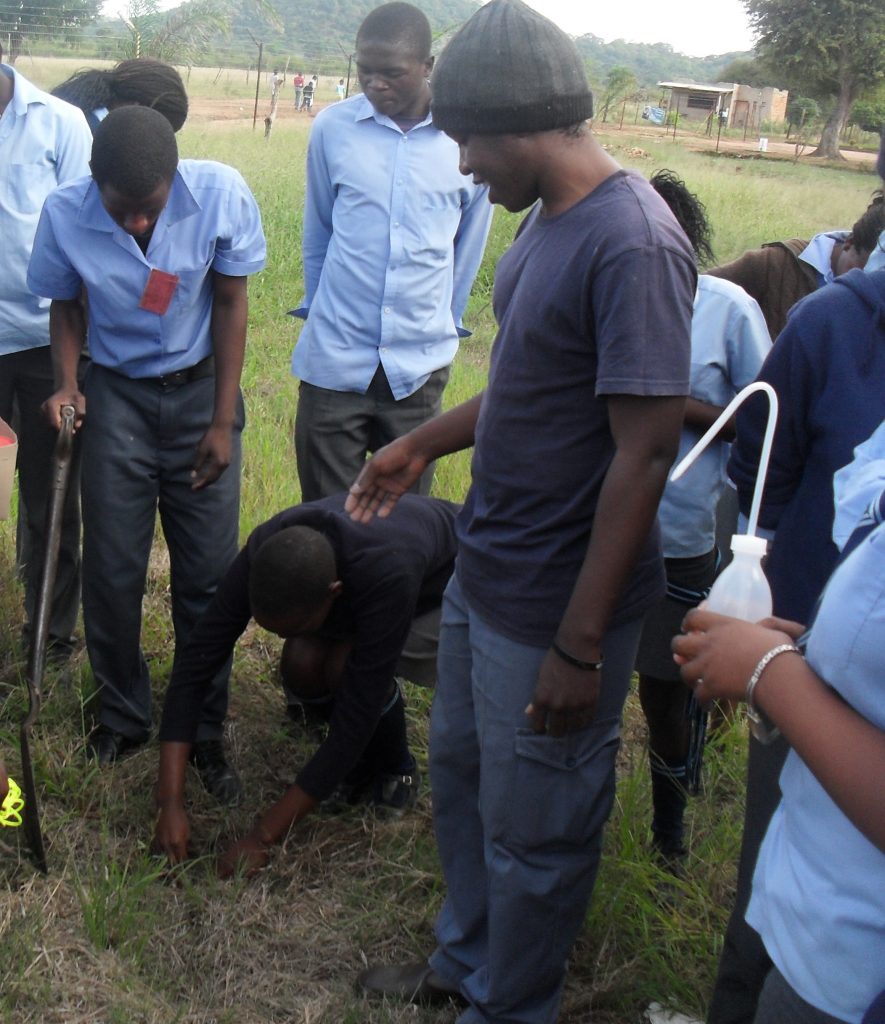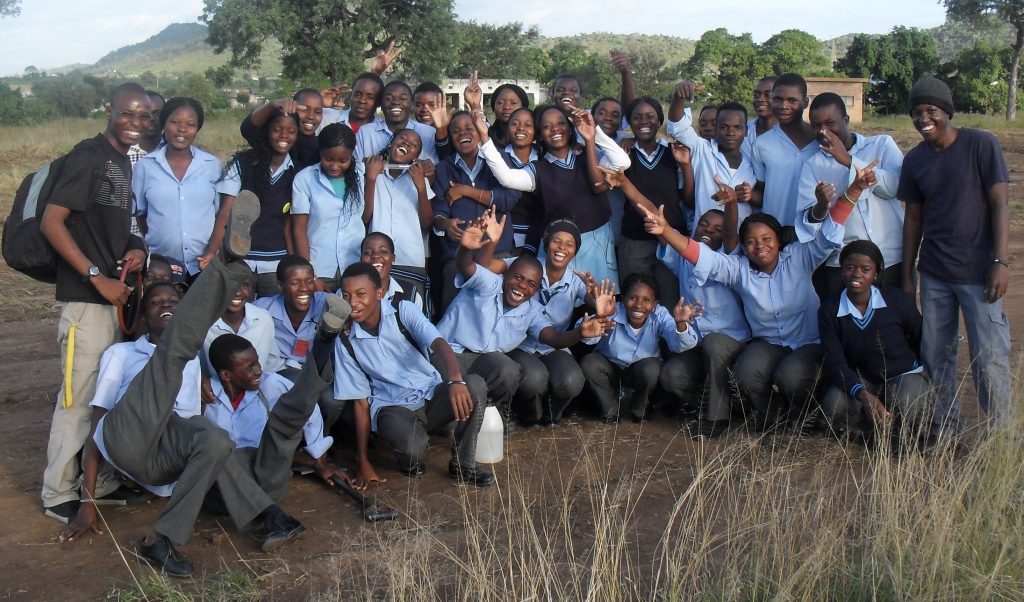In a spin off from the Iimbovane Outreach Project, it became clear that the project not only inspires high school learners but also young post graduate students.
With a passion for the youth and biodiversity, Nkhangweleni Duncan Nengwenani was so inspired by the Iimbovane Outreach Project that he adapted methods from the project for his honours study. The main aims of his study were to generate knowledge about ant species richness but also to contribute to the biodiversity knowledge of the youth.
To give him a better handle on how to collect reliable ant species data while simultaneously doing biodiversity outreach at nearby schools, Duncan visited the Iimbovane Outreach Project for training. During his time with the Iimbovane project team in 2010, where he had training in ant morphology and in the identification of ant species.
His research sites, which included both human impacted and un-impacted areas, were located in the school ground of Mugoidwa Secondary School in the Vhembe district of Limpopo. The school is located in the rural village of Vuwani, which is within the Vhembe Biosphere Reserve.
From his sampling efforts at Mugoidwa Secondary School, Duncan identified 45 ant species (some of which are morphospecies) belonging to 21 genera. Some of these species had not been previously recorded in species lists of the Vhembe Biosphere Reserve and could be added, thus providing more complete species lists of the reserve. Besides his research interest in ant diversity, Duncan is also passionate about inspiring youngsters and it is for that reason that he chose to work with the Grade 11 learners at Mugoidwa Secondary School. Learners worked with Duncan during several sampling events and were given biodiversity lessons that are in line with their life sciences curriculum. They also learnt how to sort and identify ants, which is very rare for learners from local communities, helping the learners experience biodiversity science first hand.
As part of Duncan’s study he also investigated the effectiveness of his project’s activities on learner awareness and understanding of biodiversity. For this section of his study, he prepared surveys and used a further two secondary schools as controls. These schools included Tshinavhe Secondary School and Edison Nesengani Secondary School.

Duncan noted that “while it is a challenge getting local people interested in the biodiversity of the environment they live in, with innovative approaches it can be done. Initiatives such as the Iimbovane project and my research project add to the knowledge of biodiversity while encouraging the interest in biodiversity among the local community”.
Duncan’s efforts were honoured after he was named the recipient of an award for best oral presentation at the 2011 National Research Foundation Interns’ project presentation day.
The award was presented by the President and CEO of the National Research foundation (NRF), Dr Albert van Jaarsveld.
In May 2012 Duncan is going to be awarded with an honours degree from the University of Venda.

Duncan is currently employed by NCC environmental services and stationed at Medupi power station in Lephalale where his responsibilities include monitoring the construction of the power station making sure that it is done in an environmentally friendly way. Duncan believes that education is the key to sustainable living and he plans to continue with his post graduate studies. He also hopes to be a good role model for learners.